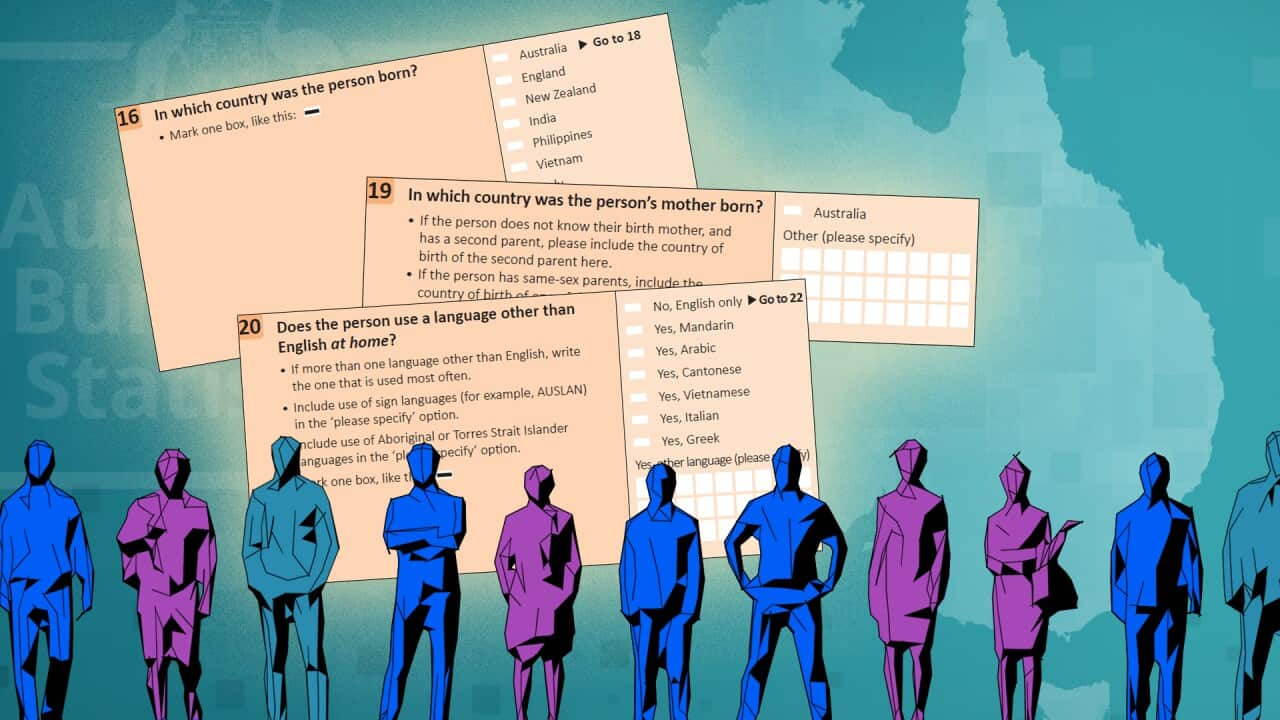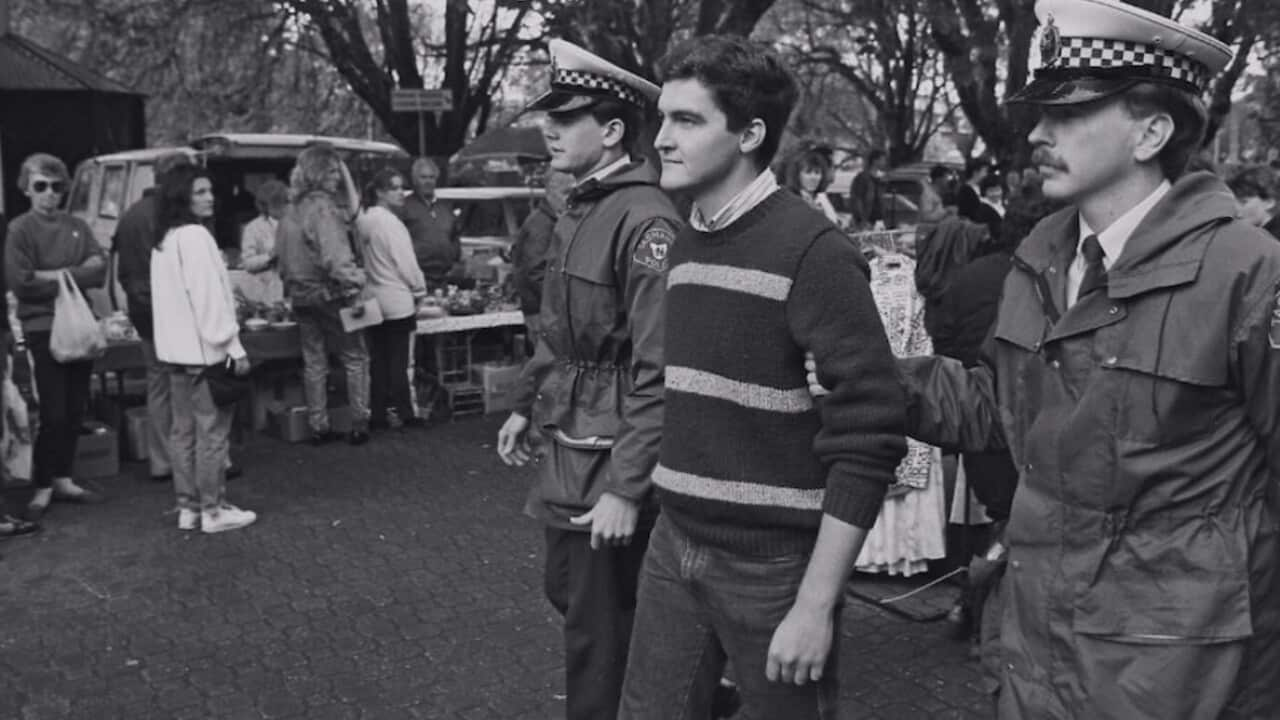Software development manager Jeanene Williams came out as a transgender woman later in life.
“It wasn't really until the Marriage Equality Bill that I sort of even had any thoughts that I'd be accepted,” she said.
It’s been five years since same-sex marriage was legalised in Australia and three years since Ms Williams came out, and while she says she feels some sense of acceptance from the general public, the government still has no clear idea how many other people are LGBTIQ+.
released on Tuesday, revealed key data on the birth countries, languages, religions, income and health of people in Australia, but there are no national statistics on gender and sexuality as that data was not collected in the comprehensive survey.

Jeanene Williams is disappointed the 2021 Census did not include questions about sexuality and gender. Source: Supplied
The ABS said in 2019 that it made explicit recommendations to the then federal government on the topics “with the strongest case for inclusion in the 2021 Census” but went on to say, “the final selection of topics for inclusion in the 2021 Census is a decision for government”.
Ms Williams, who is based in Perth and is also on the Australian Computer Society's National Diversity and Inclusion Council, said she believed gender and sexuality should have been included in the information collected in the most recent Census.
“I was extremely disappointed. I mean, it really misses a good opportunity to not just recognise people but to actually work out where we need support and what sort of support,” she said.
“It definitely means something to people, and it also means things for businesses and other different aspects of society to know this information.”

Participants in the 2021 Sydney Mardi Gras parade with a sign reading 'Queer South Asians'. The 2021 Census asked people in Australia where they were born and what languages they speak but not about their gender or sexuality. Source: AAP / Joel Carrett
He is also a transgender man and a self-confessed Census junkie.
Mr Ball worked for the Australian Bureau of Statistics as part of the Census in 2011 and 2016. He said he’d always taken an interest in the Census and as head of a service now understands the importance of the data that is collected.
“We need evidence-based research and data that shows us how we should deliver the services we provide. And the Census forms a very important function, or it could provide a very important function of creating a baseline data set that all surveys and research can be based on.”

Switchboard CEO Joe Ball says not asking about sexuality and gender means LGBTIQ+ communities may be left out of government responses. Source: Supplied
“We've already come a long way in Australia, around the inclusion of LGBTIQ+ people in society; marriage equality being one part of it, but there's also birth certificate reform. We also allow same-sex adoption, we allow both parents, regardless of their gender to be listed on birth certificates, we allow transgender people to change their birth certificates.
"Things have come a long way from the dark days of the criminalisation of our sexuality, sex and gender, so the Census needs to be in step with that,” he said.
“The Census data this week confirmed to us what we knew throughout COVID, is how poor the mental health was. But to not include the LGBTIQ+ data as a service provider, for me, means that we're left out of that picture. And then most frighteningly, it runs the risk of being left out of the response.”
Things have come a long way from the dark days of the criminalisation of our sexuality, sex and gender, so the Census needs to be in step with that.Joe Ball, Switchboard CEO and transgender man
Mr Ball said while there were other surveys done throughout Australia that capture the LGBTIQ+ community, the sample sizes were a tiny fraction of that of the Census which provides a nationwide snapshot.
“We're still stabbing in the dark too much,” he said.
Mr Ball suggested the ABS create a strategy for collecting LGBTIQ+ data as he understands it does with other segments of society considered ‘hard to reach’, such as those experiencing homelessness.
The ABS did not release data about sex (from the male, female or non-binary question), at the end of June with its first tranche of data.
While the ABS said it will publish findings later in the year after consulting stakeholders in the LGBTIQ+ community to understand the complexities, data quality and usefulness of the data, Mr Ball said he believes the details were not being released “because they bungled the question”.
Those who ticked non-binary were able to include more information in an additional text box. Mr Ball said further thought needed to be put into how the question was presented.

People create the LGBTQIA+ Progress Flag on the steps of the Sydney Opera House. Source: AAP / Bianca De Marchi
“We can expect that question will be largely junk data. It won't be very useful because people either wouldn't have understood the question [or] would have been concerned about it.
“As an example, the way the questions are done, you have one household form, and you will complete that form. There might have been people who didn't feel like they could put it down on their form because of a lack of acceptance in their household or personal safety to themselves.”
According to the ABS, where a respondent provided a male or female response and a non-binary sex response, the male or female response was used to determine a value.
“Otherwise, sex was derived using a statistical process of random allocation,” details from the ABS read.
SBS contacted the ABS about not including sexuality and gender questions in the Census but did not receive a response.
In a statement released by the ABS on the topic previously, it said “there are many considerations for inclusion of topics, including that there is limited capacity to add new topics without removing others from this important data collection”.
“Sexual orientation and gender identity topics were offered to the government to consider for inclusion, accompanied by information about known need, potential risk and potential data quality.
"In its advice to government on these topics, the ABS noted stakeholder interest in collecting the data, as well as limitations in collecting this information.”
The ABS collects data on sexual orientation through a question in the National Survey of Mental Health and Wellbeing and questions on sexual orientation via the General Social Survey.
Assistant Treasurer Andrew Leigh, whose portfolio the ABS falls under, told SBS News "the former government did not consult Labor and failed to adequately consult the LGBTIQ+ community".
LGBTIQ+ Australians seeking support with mental health can contact QLife on 1800 184 527 or visit . also has a list of support services.
Would you like to share your story with SBS News? Email












